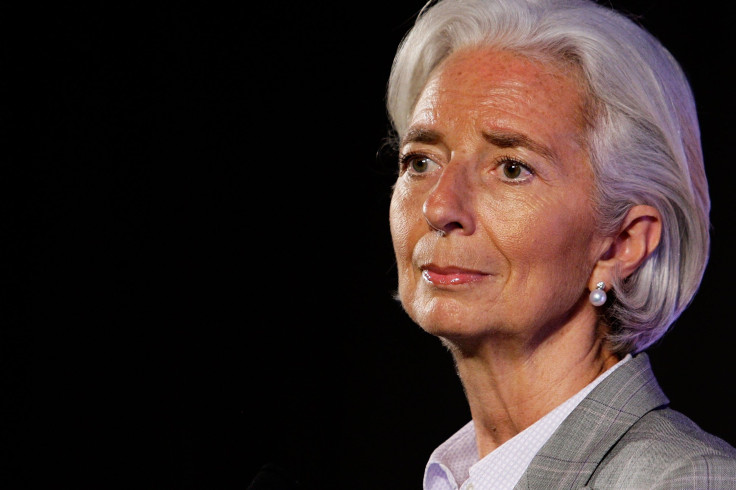Europe Refugee Crisis: IMF Chief Lagarde Says Refugees Could Boost Economy

The influx of refugees and migrants into the European Union can boost the bloc's GDP by a “positive, but small,” amount, and the resultant lowering of native workers' wages is likely to be limited, International Monetary Fund chief Christine Lagarde told reporters on the sidelines of the World Economic Forum in Davos, Switzerland, Wednesday.
Lagarde's comments came at the launch of an IMF report on the economic dimension of the refugee challenge facing Europe. The report argues that there are long-term economic benefits for Europe, if the labor market efficiently integrates refugees and migrants.
“The current surge in refugees is a challenge with an upside potential,” Lagarde told reporters. “With appropriate policies, this rich source of human capital can be harnessed with benefits for everyone.”
In the short term, the report states, European countries should see a small increase in their GDP, reflecting the fiscal expansion associated with support to the asylum seekers, as well as the expansion in labor supply as the newcomers begin to enter the labor force.
The IMF calculated that, if the majority of refugees and other new arrivals successfully integrate into the EU job market, by 2020, GDP for the EU as a whole could rise by about 0.25 percent, and between 0.5 and 1.1 percent in countries with high concentrations of migrants, such as Germany, Sweden and Austria.
With a view toward ensuring the smooth integration of new arrivals into the economy, the IMF report urged EU member states to remove barriers to refugees entering the labor market, including rules that prevent those with pending applications for asylum from working, and high statutory minimum wages.
The report also said wage subsidies for private employers hiring refugees and asylum seekers could be a useful tool in raising immigrants' employment. It also suggested that removing restrictions on refugees' geographic mobility, including housing, would allow them to move to areas of the EU where demand for labor is high.
The IMF also acknowledges the economic risks from Europe's refugee crisis, especially if many of the new arrivals end up unemployed. Failure to integrate refugees and migrants into the labor market could drive up government debts and overall unemployment rates, Nasdaq reported.
Lagarde's remarks come as the Financial Times reports that the EU is planning a major shake-up of the system which governs how it handles refugees who arrive in the bloc. The so-called “Dublin system,” which states that refugees must claim asylum in the first EU country in which they arrive, was widely seen to have failed for a variety of reasons during 2015.
EU officials have yet to spell out the nature of the changes they will make to the system, but some European leaders, including German Chancellor Angela Merkel, have pushed the idea of a quota system, to share the burden of refugees around member states. Such a system has not been embraced by other EU nations, with a plan to relocate 160,000 refugees having succeeded in moving only 322 people.
© Copyright IBTimes 2024. All rights reserved.





















